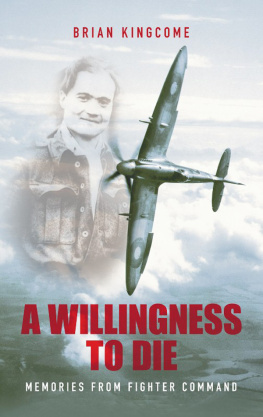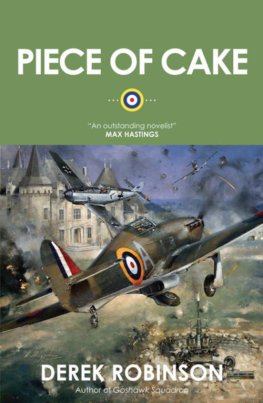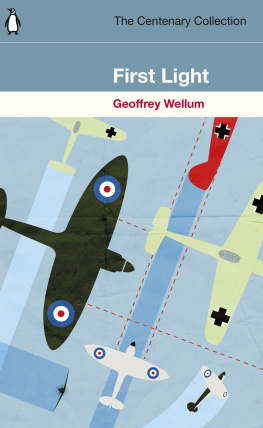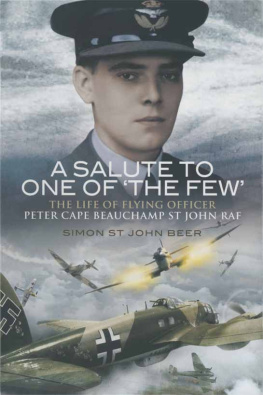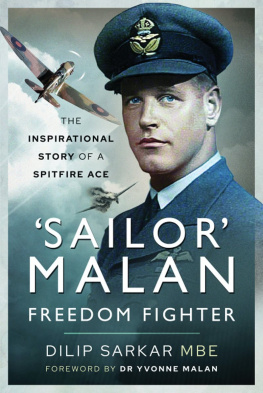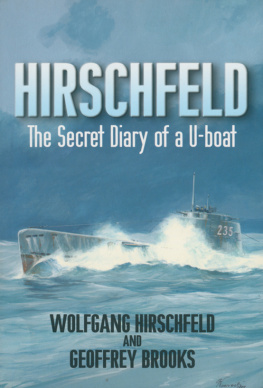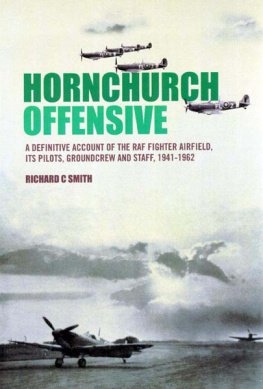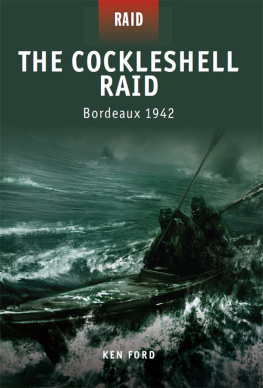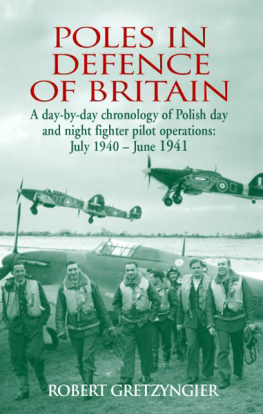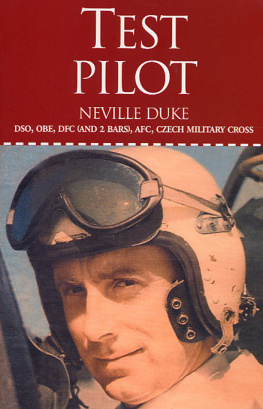A WILLINGNESS TO DIE
MEMORIES FROM FIGHTER COMMAND

A WILLINGNESS TO DIE
MEMORIES FROM FIGHTER COMMAND
BRIAN KINGCOME

Frontispiece: Brian Kingcome, by Cuthbert Orde
First published in 1999 by Tempus Publishing
This edition published in 2006
Reprinted in 2008 by
The History Press
The Mill, Brimscombe Port,
Stroud, Gloucestershire, GL5 2QG
www.thehistorypress.co.uk
This ebook edition first published in 2016
All rights reserved
Lesley Kingcome 2006, 2008
The right of Brian Kingcome to be identified as the Author
of this work has been asserted in accordance with the
Copyrights, Designs and Patents Act 1988.
This ebook is copyright material and must not be copied, reproduced, transferred, distributed, leased, licensed or publicly performed or used in any way except as specifically permitted in writing by the publishers, as allowed under the terms and conditions under which it was purchased or as strictly permitted by applicable copyright law. Any unauthorised distribution or use of this text may be a direct infringement of the authors and publishers rights, and those responsible may be liable in law accordingly.
EPUB ISBN 978 0 7524 7350 5
Typesetting and origination by Tempus Publishing Limited.
eBook converted by Geethik Technologies
CONTENTS
TO MY MINDER
AUTHORS NOTE
Anyone looking for a chronological sequence of events wont find it here. Im no diarist, have no notes and a fading memory which at its best was never strong. I wanted to call this book The Ramblings of a Geriatric Ex-Fighter Pilot. I was restrained, mainly by my wife whose benevolent terrorism, thank God, controls my life. Nonetheless the title would have been apt, for thats what its really all about. Theres a vague chronological thread where time seemed the most logical link, but in many instances it isnt and indeed is often an irrelevance.
In my mind events are linked by many factors often transcending the barriers of time, sometimes by a similarity of the events themselves, sometimes by the atmosphere they evoked, often by the sounds, the smells, the emotions, the fears, the passions they triggered. These are the paths down which my memory led me and which Ive cheerfully followed when they seemed more natural than those dictated by a slavish subservience to calendar and clock.
This book is no more and no less than a brief glimpse into long ago times and places by an eyewitness who considers himself lucky to have been born into that era. Interest in them may now have waned. If so, or if my chronological untidiness proves too confusing, I shall of course be disappointed but ritual suicide will remain low on my list of priorities.
Ive enjoyed reviving memories Id thought long dead.
And worse things happen at sea.
Brian Kingcome, DSO, DFC, Erstwhile Group Captain RAF, Devon.
FOREWORD BY GEOFFREY WELLUM
In early June 1940 and as a newly trained, very young and junior pilot officer, I was posted to and joined 92 Squadron. I immediately became aware of a tall rather nonchalant Flt Lt with a captivating personality. He was introduced to me as my Flight Commander, Flt Lt Brian Kingcome. Immediately, on first acquaintance, he commanded my greatest respect and during my time with 92 Squadron, from June 1940 until August/September 1941, I bent the knee to only one person, one Brian Kingcome.
During the Battle of Britain we lost four Commanding Officers but the squadron was led and indeed held together, during Fighter Commands most testing time in September 1940 and during its greatest days, by Brian.
He led from the front. He was a come-oner and not a go-oner and as a result earned the deepest respect and affection from all those who were fortunate enough to follow him into battle. Brian Kingcome was 92 Squadron.
This book makes for compelling reading and portrays a man, fighter pilot and leader of the highest quality, a man who could look any other man straight in the eye.
Sqn Ldr Geoffrey H.A. Wellum, DFC
First Light by Geoffrey Wellum is published by Penguin.
INTRODUCTION
I corresponded with Brian Kingcome only once. He was then about two thirds of the way through drafting the story of his early life and his wartime service as a fighter pilot, and he wanted an opinion on how he was getting on with it. To enable himself to write it he had bought an already venerable second word processor and was knocking out his memoirs on a basis of association as thoughts occurred to him one recollection leading to the next.
The result was a text with problems for which solutions would need to be found. On the other hand, it was a manuscript with personality and charm that had points to make, and it was saying them in a way that made their tone quite distinct from that of much other wartime reminiscence. There was a powerful aversion in its viewpoint to the clichs of writing about war in general and of the experiences of Second World War battle pilots in particular.
A Willingness to Die was clearly a book with the potential to be published, especially since it came from someone whose name was a legend among the airmen of his generation. Kingcome was writing it, as he said, in the only way he could think of, off the top of his head. This being so, it seemed important not to stem the flow by putting forward ideas about editorial discipline. At that stage the priority was to urge him to continue and to make sure he was getting down everything he had it in mind to say. Tactful advice with editorial technicalities could follow when there was a completed manuscript draft. Some months later, on 14 February 1994, Brian Kingcome died suddenly.
He was still working on his text, and no one can say how much more he might have written. Nor can anyone say how the book might have turned out if he had been able to work on his draft armed with editorial comment and his own second thoughts. At a guess he might have added another thirty or forty pages to give more details of his time in Italy during the last stages of the war (particularly of his atypical experiences with 205 Bomber Group) and the early months of peace in the Middle East and Austria. The text has had to be shaped from the material he did produce. The last, post-war part of his RAF career was covered by little more than synopsis notes.
The editing has involved breaking down the text and rebuilding it to allow the emergence of a narrative thread (which happens to be broadly chronological, whether or not this would have appealed to Kingcome). Inevitably there has been rewriting as well as some writing in to provide links. In this case I have, in the role of editor, had to be more of a locum tenens for the author than usual. At every stage there has been the need to preserve, sometimes to enhance, Kingcomes voice, and to avoid putting words in his mouth that might ring false. This has been the basic challenge of the manuscript as he left it.
Brian Kingcome belonged to a generation for which the romance of the air was still pristine, before the growth of air travel had made flying a commonplace. It was still possible in the 1930s for the aspiring pilot to feel he was joining the ranks of the frontiers men, pushing back the barriers of the element of air and exploring where men had never been before while gaining an entirely new perspective on the world stretched out below. The novelist David Garnett, author of
Next page
